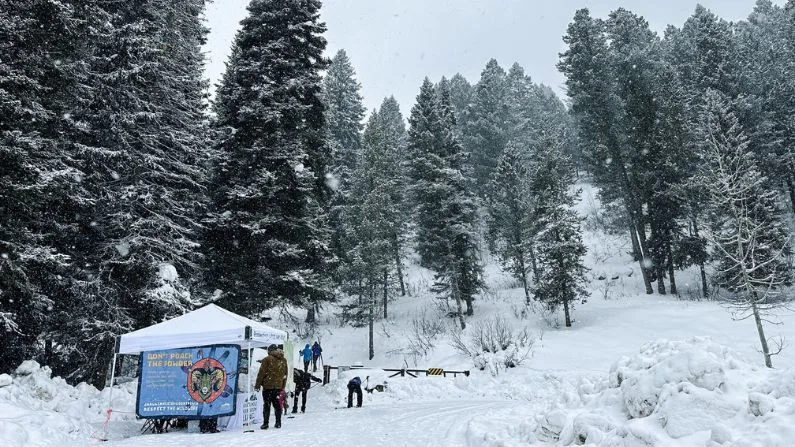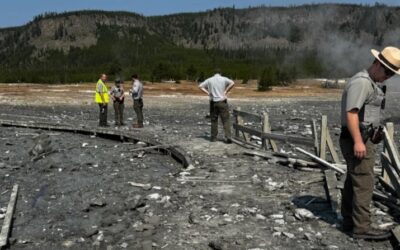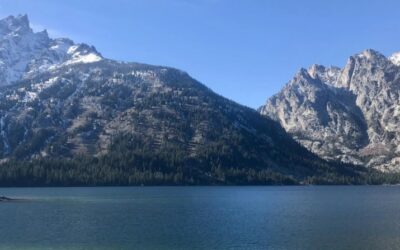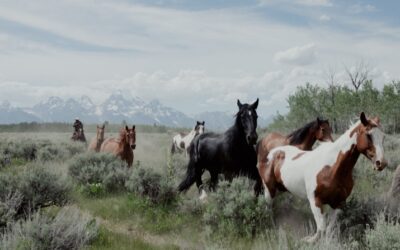As snow finally started to fall in the Tetons recently, the parking lot at Old Pass Road filled up with backcountry enthusiasts enjoying public forest land – cross country skiers, dog walkers, and skiers and boarders finishing their runs off Teton Pass.
At the head of the trail was a group of volunteers from the Jackson Hole Conservation Alliance with brochures, maps and even a bighorn sheep skull.
Jeff White, a retired rangeland ecologist, said the goal is to spread awareness about winter wildlife closures and to get people to sign a pledge for the “Don’t Poach the Powder” campaign.
“Working to help protect the local bighorn herd is important to me so that we can pass this on, keep ecosystem integrity in place and provide for shared landscapes for recreation as well as a resident wildlife,” White said.
The seasonal closures are implemented by public land managers to protect wildlife from disturbances caused by human activities. In the Tetons, that’s usually inadvertently by backcountry users.
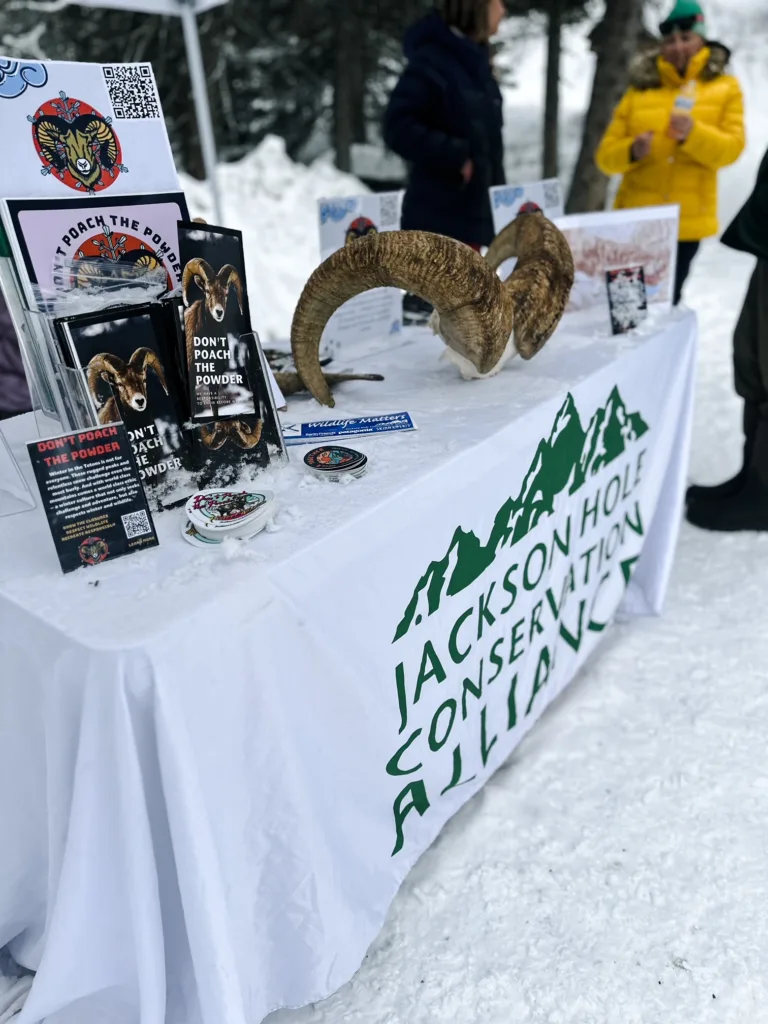
The Jackson Hole Conservation Alliance’s table at Old Pass Road with information about their campaign. (Erika Dalhby/KHOL)
According to the conservation alliance’s community engagement manager, Kelsey Persyn, the closures play a crucial role in conserving energy and resources for the area’s diverse fauna.
While they aim to protect a broad range of species, the alliance’s campaign has an emphasis on the Teton bighorn sheep herd, which sits at a population likely under 200 animals.
“Although they’re really hardy animals, in the wintertime, they can be affected greatly by human disturbances,” she said. “They have a really small winter range, limited resources, and if people disturb that winter range, that can really affect their population.”
Bighorn sheep — and their habitat — are the subject of debate in Grand Teton National Park, where some popular backcountry terrain could be off limits in the future to protect the animals.
While most backcountry users were happy to sign the pledge to stay out of closed areas, not everyone is on board. One backcountry skier told the volunteers they weren’t interested in signing the pledge because they wanted to keep skiing Rendezvous Peak, an area that could be affected by future closures.
“You win some, you lose some,” Persyn said after the interaction. “We’re trying to just get backcountry skiers in the area to have fun in the backcountry, be safe, but also just keep these amazing animals in mind.”
When the park first proposed a management plan in 2022, they received 75 public comments. One of those was an 11-page document submitted by five winter recreationalist organizations, including the Teton Backcountry Alliance.
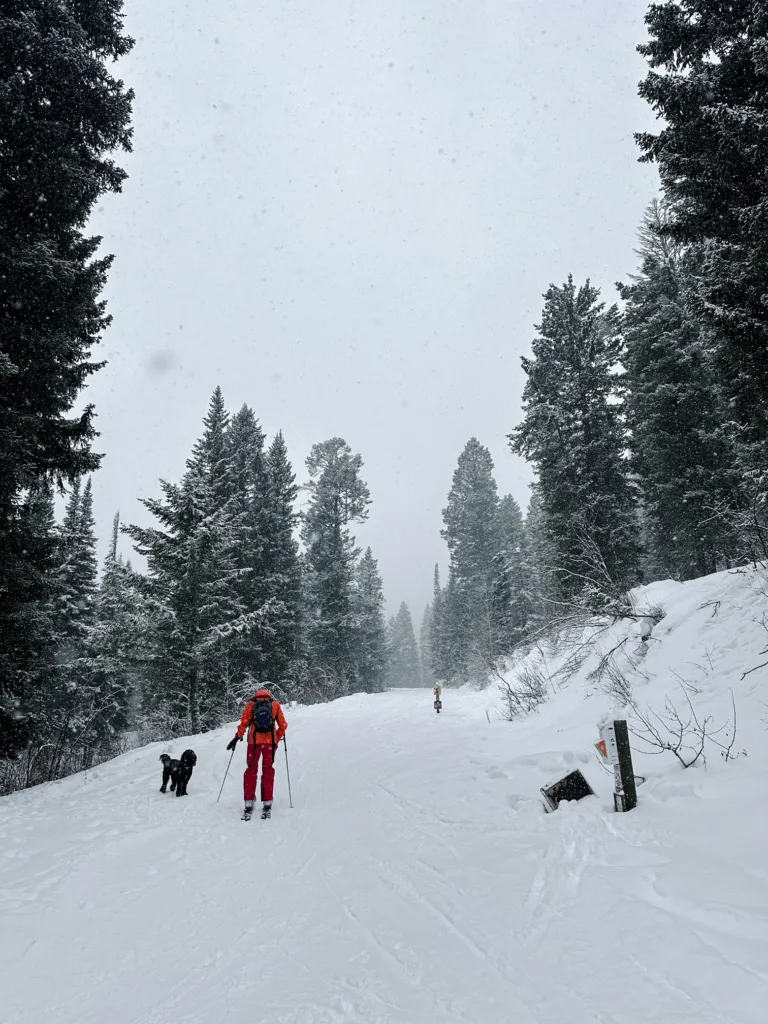
A skier and a dog head out on Old Pass Road, a popular spot to access backcountry terrain. (Erika Dahlby/KHOL)
Gary Kofinas, chair of the group, said that while there is a wide diversity of perspectives among backcountry skiers, their research through surveys, discussions and meetings finds that most people are supportive of conservation efforts.
But collaboration is key. They’re hoping the decision making and management be done in a way that lets recreationists participate.
“I would say first and foremost the Backcountry Alliance supports efforts to conserve and sustain the Teton bighorn sheep population,” he said. “We need to do our part as backcountry users to support that goal.”
Land managers ultimately have the authority to close areas, but Kofinas is hoping for a collaborative approach with backcountry users so that what comes out in the end and what is decided by the agencies is well informed.
“We reduce the kind of ‘us versus them’ dynamics that could emerge,” he said. “We find the balance by involving both agencies, research scientists and resource users in making decisions.”
The next step, an environmental assessment and draft analysis of the potential closures, was delayed by the influx of public comment. It is expected to be announced this spring or summer.

